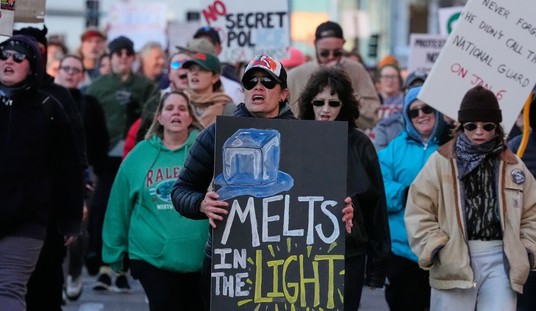Why is it, whenever the federal government — in all of their august and well-meaning wisdom — creates a program that either hands out money and/or attempts to manipulate the free market by injecting it with artificial incentives, it always seems to be so rife with waste, fraud, and, abuse? From agriculture and energy subsidies to food stamps to Medicare and Medicaid, the feds lose hundreds of billions of taxpayer dollars every year via the nefarious deeds of people who scam the system. It couldn’t be that Big Government is both a vehicle for costly, bureaucratic inefficiency as well as an enabler of opportunities for said waste, fraud, and abuse, could it?
As if we needed yet another reason that the entire thing should be scrapped, the Renewable Fuel Standard that Jazz and I frequently deplore is no exception to that notorious rule. The RFS requires that the nation’s refiners blend a particular volume of biofuel into the gasoline supply, or else purchase credits known as renewable identification numbers (RINs) — and the FBI just indicted two individuals this past week for their alleged gigantic fraud scheme.
WASHINGTON—Two men have been indicted by a federal grand jury in Las Vegas for offenses involving the federal renewable fuel program that allegedly netted them more than $37 million, announced the Justice Department’s Environment and Natural Resources Division, Criminal Division, and the U.S. Attorney’s Office for the District of Nevada. The 57-count indictment against James Jariv, 63, of Las Vegas, and Nathan Stoliar, 64, of Australia, includes allegations of conspiracy, wire fraud, false statements under the Clean Air Act, obstruction of justice, and conspiracy to engage in money laundering. …
The indictment alleges that beginning around June 2009, the two defendants, James Jariv and Nathan Stoliar, operated and controlled a company, City Farm Biofuel in Vancouver, British Columbia, Canada, that held itself out as a producer of biodiesel from “feedstocks” such as animal fat and vegetable oils. Jariv also operated and controlled a company based in Las Vegas, Nevada, called Global E Marketing. The government alleges that these defendants claimed to produce biodiesel at the City Farm facility, claimed to import and sell biodiesel to Global E Marketing, and then generated and sold RINs based upon this claimed production, sale, and importation. In reality, little to no biodiesel produced at City Farm was ever imported and sold to Global E Marketing as claimed. The indictment alleges that the defendants’ scheme allowed them to generate approximately $7 million in RINs that were fraudulent, which were then sold to companies that needed to obtain them.
The indictment also alleges that, beginning around the same time period and continuing through December 31, 2013, the defendants, using their company MJ Biodfuels, bought more than 23 million gallons of RIN-less biodiesel that had been blended with small amounts of petroleum diesel, known as B99, from companies in the United States. The defendants sold some of this biodiesel to purchasers in the United States, claiming it was pure biodiesel, known as B100, produced at the City Farm facility and imported into the United States. By claiming this biodiesel was B100 and not RIN-less B99, the defendants were able to claim the fuel was eligible to be used to generate credits and incentives and were able to sell the fuel for significantly more than they otherwise would have been able. The defendants also exported the RIN-less B99 they bought in the United States to Canada. The defendants then sold the biodiesel in Canada and conspired not to acquire and provide RINs for these exports to the United States as they were required to do, but instead to keep the money they received from the sales for themselves. The indictment alleges that, in doing so, the defendants failed to give to the United States RINs worth in excess of $30 million, keeping this money for themselves instead.
And this is in no way an isolated incident; the DOJ was clamping down on a similar scam just last month:
The U.S. Environmental Protection Agency said it has invalidated 33.5 million renewable-fuel credits sold by an Indiana company for biofuel it didn’t produce, the fourth time the agency has alleged fraud in the program.
The filing today follows fraud charges filed against the former owners of the Indiana-based E-Biofuels LLC in September. The U.S. Justice Department accused them of falsely claiming its products qualified under government incentives for renewable fuels. …
The market in credits for the cleaner fuel seized up last year after federal prosecutors accused Clean Green Fuels LLC of selling 32 million fraudulent certificates. A second company, Absolute Fuels LLC, was issued a notice of violation in February for selling 48 million bogus certificates.
So… can we get rid of this unworkable, top-down, not-clean, not-green, fraud-riddled disaster yet?








Join the conversation as a VIP Member